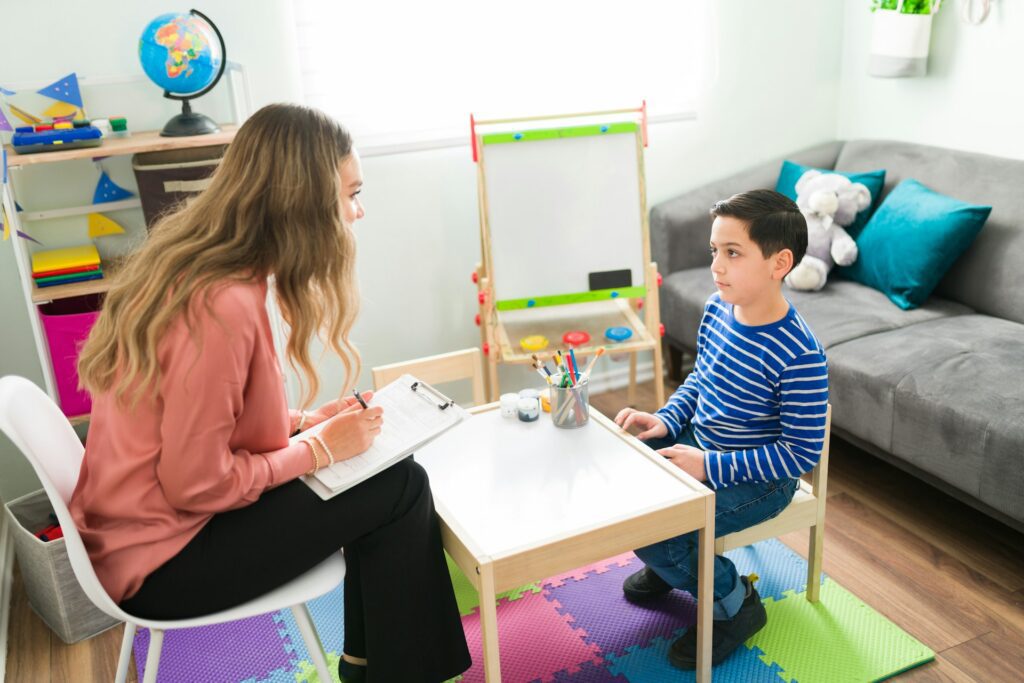As parents, we want the best for our children, especially when it comes to their education. For children with Autism Spectrum Disorder (ASD), managing the school system can sometimes be challenging. That’s where a child psychologist can make a world of difference. These professionals play a key role in ensuring that children receive the support they need to thrive both academically and socially. In collaboration with schools, child psychologists become advocates, helping to create an environment where every child can succeed.
Partnering with schools, child psychologists work behind the scenes, interacting with teachers and administrators to implement strategies tailored to each child’s needs. Imagine a bridge that connects two sides – in this case, the school’s resources and the child’s unique requirements. By facilitating this connection, psychologists ensure that children have the tools they need to feel comfortable and supported in their educational journey.
Understanding the Role of a Child Psychologist
A child psychologist is like a guide who helps unravel the complex world of a child’s mind. These professionals have a deep understanding of how children think and feel and use this knowledge to support their development. In the context of ASD, child psychologists focus on specific functions that can significantly impact a child’s day-to-day experiences.
One of their primary roles is assessing and understanding the individual needs of a child. Every child is unique, and so are their challenges. Psychologists use various techniques to recognize strengths and areas that may require extra attention. For example, they might conduct assessments to gauge a child’s social interactions, communication skills, and behavior patterns. This information becomes the foundation for developing strategies that align with the child’s needs and the goals of their education plan.
Beyond assessments, child psychologists offer continuous support throughout a child’s development. They work closely with teachers, helping them understand the nuances of ASD and how to best support their students. By providing teachers with practical strategies, psychologists enable a positive classroom experience. It’s a collaborative effort aimed at fostering a more inclusive learning space where every child has the opportunity to learn and grow.
Key tasks performed by child psychologists include:
– Conducting assessments to identify areas of strength and need.
– Developing individualized strategies and plans.
– Offering guidance and support to teachers and school staff.
– Providing ongoing evaluation and adaptation of strategies.
With their experience and knowledge, child psychologists become staunch advocates for children with ASD, ensuring they have the necessary support to reach their potential in a school setting. This advocacy also extends to educating parents about the role they can play in supporting their child’s educational journey, creating a united team committed to the child’s success.
Advocating for Your Child in School Settings
Collaboration between school staff and a child psychologist is a powerful way to support children with ASD effectively. This partnership helps ensure that everyone involved in a child’s education is on the same page, working towards common goals. School staff often benefit from the psychologist’s insights and expertise, gaining a clearer understanding of autism and the strategies that can enhance a child’s learning experience. By bridging the gap between academic expectations and personal capabilities, child psychologists help create a supportive learning environment tailored to each child.
A child psychologist often collaborates directly with teachers and school administrators. They attend meetings and provide valuable input on educational plans and classroom accommodations. This involvement helps educators develop and implement Individualized Education Plans (IEPs) and behavioral support plans. IEPs are unique plans designed to address specific educational needs, ensuring that children receive appropriate support in line with their learning objectives.
With these tools, children can experience less stress and more success in the classroom. They also help foster a sense of belonging and acceptance among peers, which is vital for social development. For example, a psychologist might recommend strategies for a teacher to help a child better understand social cues or manage sensory sensitivities, making the school day more comfortable and productive.
Key Strategies Used by Child Psychologists
Child psychologists employ a variety of strategies to support students with ASD in school settings. These strategies are designed to address both academic challenges and social-emotional needs. Understanding the importance of a structured approach, psychologists often focus on clear, consistent routines that can help children know what to expect.
Some common strategies include:
– Developing IEPs to set tailored learning goals.
– Introducing behavioral support plans to address specific behaviors.
– Using visual aids and social stories to explain complex concepts.
– Implementing sensory-friendly modifications in the classroom.
These approaches provide children with a clearer roadmap for managing their school day. The benefits of these strategies can be substantial, leading to greater academic achievement and improved social interactions. Children may demonstrate increased confidence and a willingness to engage with their peers.
Creating a Brighter Future for Your Child
A child psychologist’s role is essential in shaping a supportive educational journey for children with ASD. By advocating for their needs and working closely with schools, these professionals help to ensure that children receive a well-rounded education that considers their unique strengths and challenges. It’s about building a future where each child has the opportunity to thrive, supported by a team that understands and values their individual needs.
Parents play a crucial role in this process too. By partnering with both psychologists and schools, they can contribute to an empowering educational experience for their child. Being proactive in communication and collaboration helps ensure that every child’s voice is heard and valued, paving the way for a bright future filled with possibilities.
Partnering with a child psychologist in Silver Spring can make a significant difference in your child’s educational journey. Explore the services offered by Behavioral & Educational Solutions P.C. to see how their expertise can support your child in overcoming challenges and thriving in their school environment. By working together, you can ensure your child receives the comprehensive care and tailored strategies they need to flourish.





